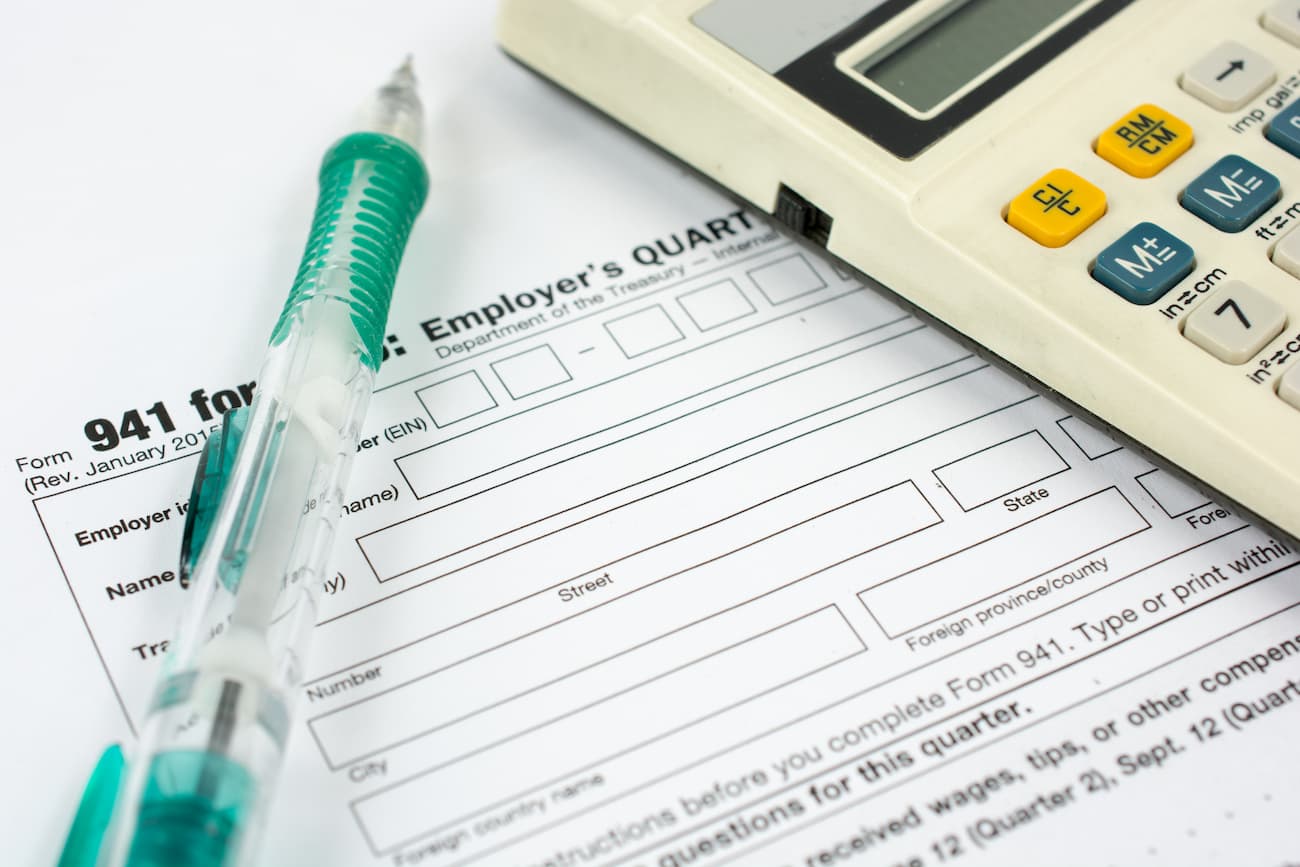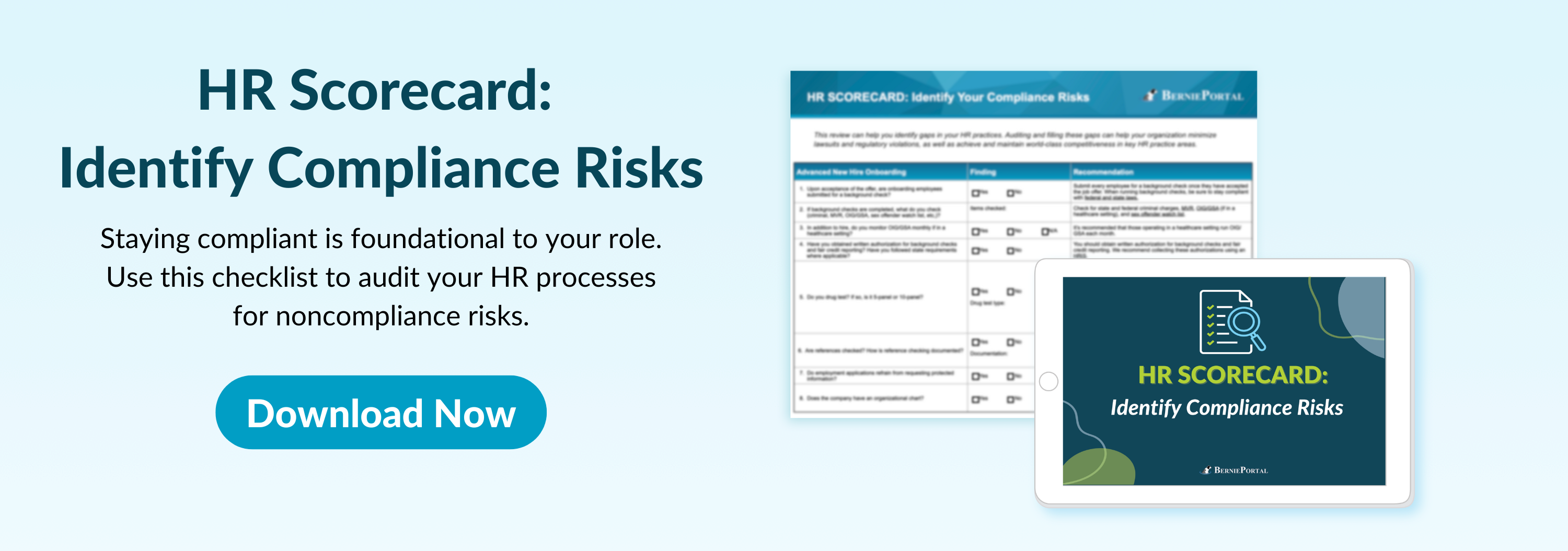Written by
Will Miranne
Will is an aPHR-certified writer on the marketing team at BerniePortal. He writes about healthcare, human resources, and benefits.
What Are Quarterly Tax Forms 941 and 1040-ES?

Several tax documents must be filed annually, while two specific forms are filed quarterly—Form 941 and Form 1040-ES. Tax forms can be complicated and often provoke questions, such as what these forms mean? Who is required to file them? And why must they be filed?
Continue reading to learn everything you need to know about Forms 941 and 1040-ES.
What Is Form 941?
Form 941 is the quarterly federal tax return for employers. It indicates how much income tax, Social Security tax, and Medicare tax an employer withheld from its employees’ paychecks in the previous quarter.
Download a blank Form 941 here.
According to the IRS, any person or employer who pays wages that are subject to the withholding of federal income tax, Medicare taxes, or Social Security is required by law to file Form 941. If you run a business or pay employees, you will likely need to file this form.
Once you have filed the first form, you must continue to file each quarter, even if you have nothing new to report. The only exception is if you have chosen to file a final return or if you have a qualifying exception.
Exceptions are a set of rules that will apply to specific employers. They include:
-
If you are notified to file Form 944, then you will not need to file Form 941.
-
If seasonal employers claim no tax liability for a specific quarter, then they will not need to file Form 941 for that quarter. For the quarters you do file, be sure to check box 18a to indicate to the IRS that you will not file the form for a specific quarter.
-
Typically, employers of household employees will not file Form 941.
-
If an employer employs agricultural labor, then they will not file Form 941 for those workers.
What Should You Include in Form 941?
To remain compliant, employers must withhold the correct amount of money and accurately report it to the IRS.
Form 941 is to be filed quarterly and is to include the following:
-
Paid wages
-
Any tips reported to you
-
All federal income tax that you withheld
-
Employer and employee share of Social Security and Medicare taxes
-
Any further Medicare taxes that were withheld from employees
-
Your current quarter’s adjustments to Social Security, Medicare taxes (even fractions of a cent), sick pay, tips, and group-term life insurance
-
Any qualified small business payroll tax credit used for increasing the research activities of the business
-
Any credits for COBRA assistance payments
-
The total amount of advances received from filing Form 7200 for that quarter
Form 941 should not be used for reporting unemployment taxes or any withholdings on payments that are not on the payroll. These would include pensions, gambling winnings, or annuities.
When Is Form 941 Due?
You will need to file Form 941 for the first quarter in which you will pay Social Security and Medicare taxes or are subject to federal income tax withholding. From here, you must file for each quarter thereafter or every three months. This is required even if there are no taxes to report. The only exceptions are listed above under “qualified exceptions.”
You will only file this report once during any specific quarter. If you choose to file electronically, do not also file a paper copy.
The due date for Form 941 is the final day of the month that follows the end of the quarter. The quarters are listed as follows:
-
January-March (final date to file: April 30th)
-
April-June (final date to file: July 31st)
-
July-September (final date to file: October 31st)
-
October-December (final date to file: January 31st)
The only exception to this rule per the IRS is “If you made timely deposits in full payment of your taxes for the quarter, you might file by the 10th day of the 2nd month that follows the end of the quarter. For example, you may file Form 941 by May 10 if you made timely deposits in full payment of your taxes for the 1st quarter.”
→ Stay prepared for HR challenges this year. Download Now: State of HR 2023 [Free Survey Report]
What Is Form 1040-ES—Estimated Taxes?
Form 1040-ES is filed by those who are paying estimated tax. If you are self-employed or otherwise required to pay estimated taxes, you must file form 1040-ES four times annually.
Estimated tax is a payment submitted four times throughout the year. This quarterly payment is required on all income not subject to federal tax withholding. Some examples of this type of income might include:
-
Self-employment
-
Freelance
-
Dividends
-
Capital gains
-
Alimony
-
Interest
-
Prizes
-
And awards
Estimated taxes are also used to pay for self-employment and alternative minimum taxes. Keep in mind that all taxes must be paid in full and on time, or you may be subject to penalties.
Generally, those who are self-employed or own a small business must pay estimated taxes via form 1040-ES.
For the sake of estimated taxes, “self-employed” will typically refer to individuals who work as:
-
A sole proprietor
-
An independent contractor
-
A member of a partnership like an LLC
-
Or someone who runs their own business
Estimated tax doesn’t need to be collected from individuals who are paid a salary or wages and have requested that their employer withhold the additional taxes.
Individuals required to pay estimated taxes must file form 1040-ES by certain dates each quarter. Those dates are:
-
April 18th, 2023, for Q1
-
June 15th, 2023, for Q2
-
September 15th, 2023, for Q3
-
And January 15th, 2024, for Q4
Additional Resources
You can also stay informed, educated, and up-to-date with tax forms and other important topics by using BerniePortal’s comprehensive resources:
-
BernieU—free online HR courses, approved for SHRM and HRCI recertification credit
-
BerniePortal Blog—a one-stop-shop for HR industry news
-
HR Glossary—featuring the most common HR terms, acronyms, and compliance
-
HR Guides—essential pillars covering an extensive list of comprehensive HR topics
-
HR Party of One—our popular YouTube series and podcast, covering emerging HR trends and enduring HR topics
Written by
Will Miranne
Will is an aPHR-certified writer on the marketing team at BerniePortal. He writes about healthcare, human resources, and benefits.
Related Posts
Each year, new state and local regulations take effect, and with a new administration...
As we approach 2025, it's essential for HR professionals to plan for the upcoming year's...
From major holidays to key compliance and ACA deadlines, here’s everything you need to...








Submit a Comment